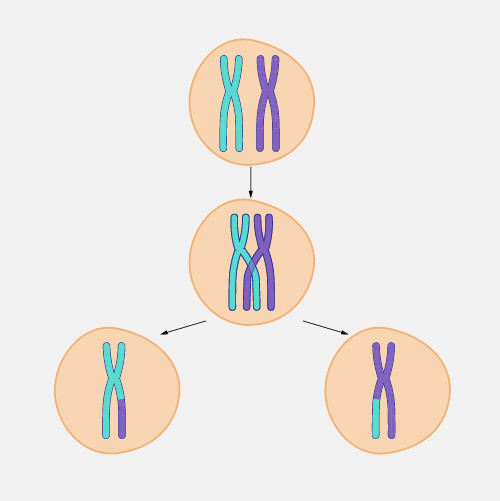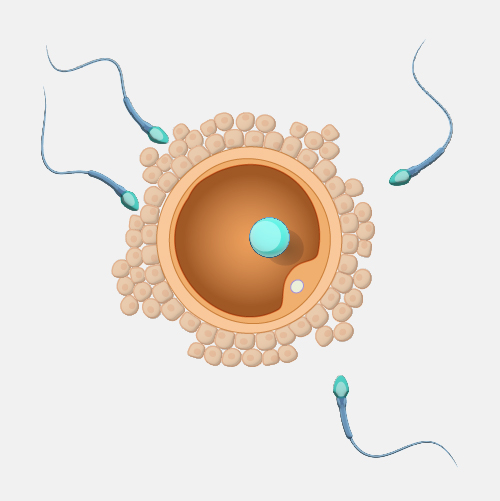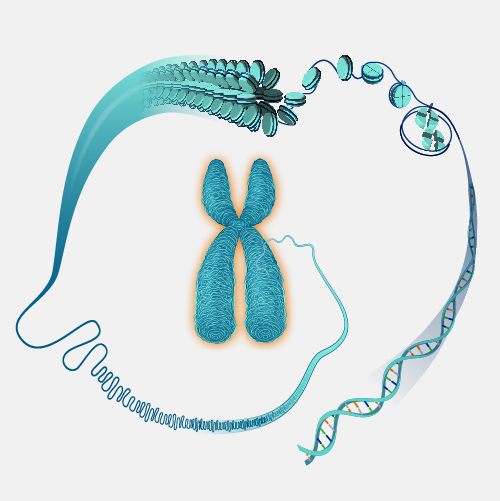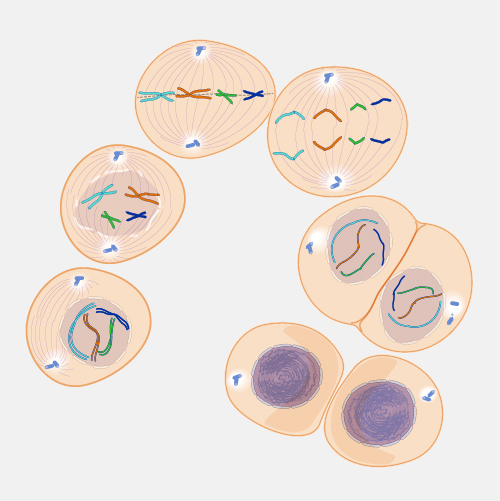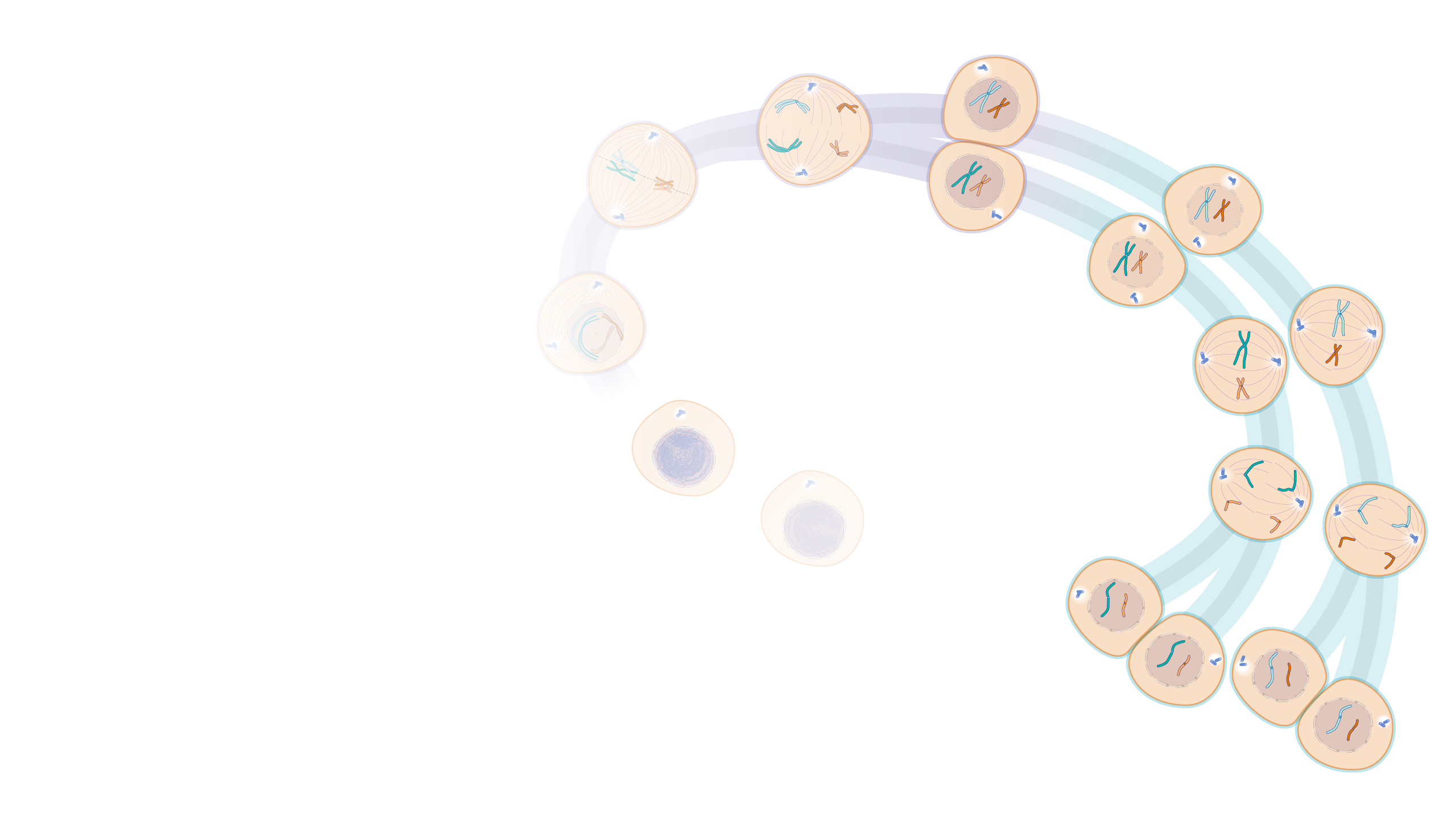
Meiosis
Definition
Meiosis is a type of cell division in sexually reproducing organisms that reduces the number of chromosomes in gametes (the sex cells, or egg and sperm). In humans, body (or somatic) cells are diploid, containing two sets of chromosomes (one from each parent). To maintain this state, the egg and sperm that unite during fertilization must be haploid, with a single set of chromosomes. During meiosis, each diploid cell undergoes two rounds of division to yield four haploid daughter cells — the gametes.
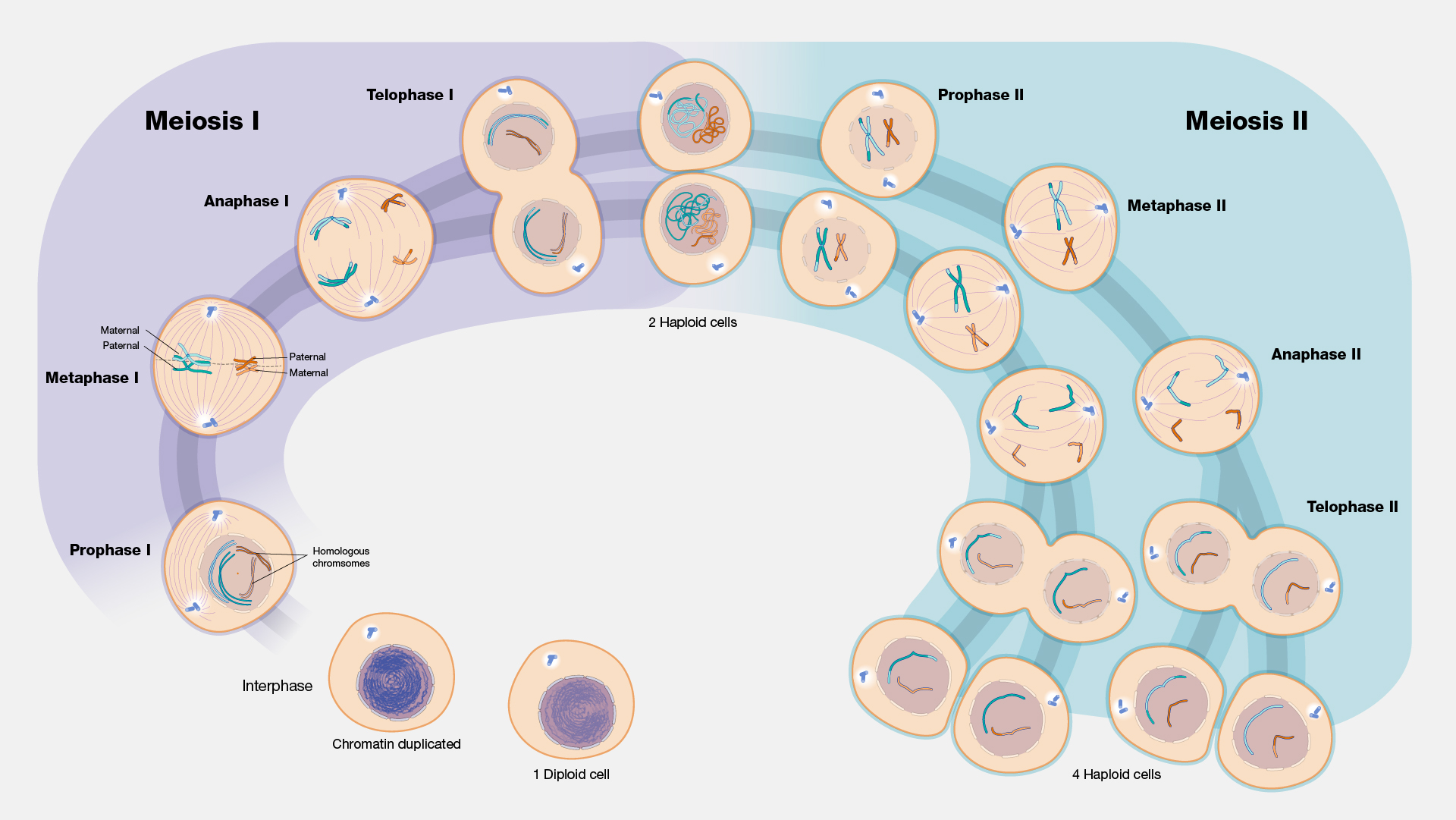
Narration
Meiosis. Humans have 46 chromosomes in almost every cell, 23 that came from one of our parents and 23 very similar chromosomes that came from the other one of our parents. It is really important to have the right number of chromosomes in a cell. If a cell has extra chromosomes or is missing a chromosome, that can have very substantial impacts on how it functions. We can think of meiosis as a way cells very carefully count and divide their chromosomes so that each gamete, each egg or sperm, has exactly 23 chromosomes. Then when an egg with its 23 chromosomes is fertilized by a sperm with its 23 chromosomes, the resulting fertilized egg has exactly 46 chromosomes. And a new human that grows from that fertilized egg will have 46 chromosomes in all of its cells.


